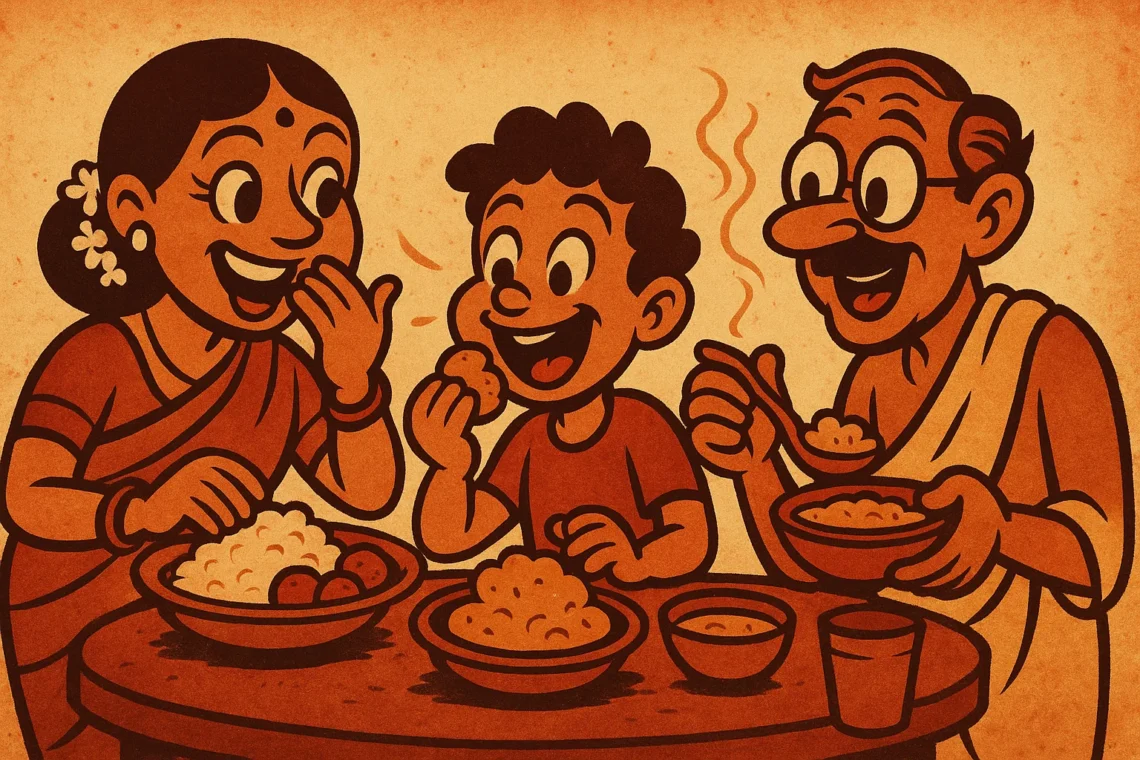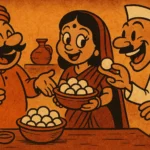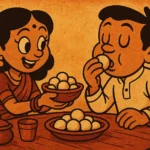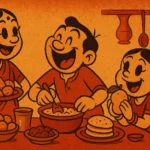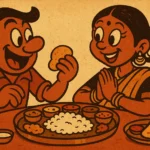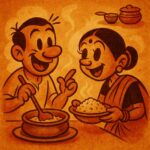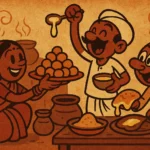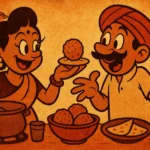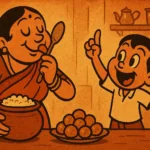Grief doesn’t always knock. Sometimes it sneaks in through the kitchen door, trailing behind the scent of ghee and cardamom. Sometimes, it waits until your first bite of something familiar — something you’ve eaten a hundred times — and then, right there in the middle of a mouthful, it strikes. No warning. No preamble. Just you, a spoon of something warm, and a wave that floors you.
For me, it was a piece of soft, syrupy rasgulla. One I didn’t even want. I was at a condolence visit — the kind where no one knows what to say, so they offer food instead. Someone passed me the box like it was protocol. I took one because it was easier than saying no. I bit into it absentmindedly, already halfway into a fog of ritual and small talk.
And then, without meaning to, I remembered.
She Always Saved Me the Last One
My aunt loved rasgullas. Not in a casual, oh-this-is-nice way — I mean loved them with devotion. She believed there was no grief a rasgulla couldn’t soften, no celebration complete without one. When I was a kid and stayed over at her house during summer holidays, there was always a cold box in the fridge, wrapped tightly in newspaper, like it needed protection. She would eat one, carefully, slowly, spooning the syrup and sighing with the satisfaction of someone who truly understood joy.
Whenever I visited as an adult, no matter how spontaneous, she’d somehow have one waiting. “Just one left,” she’d smile, and hand it over. I never asked how she always had the last one. But I liked thinking she saved it for me.
One Bite, a Thousand Feelings
So that day, when I bit into the rasgulla, it was her kitchen I tasted — not the dry drawing room I was sitting in. I tasted cold ceramic bowls. I tasted the sound of her anklets in the hallway. I tasted comfort. And only then did I really feel the ache of her absence.
Grief hadn’t arrived at the funeral. Or at the cremation. Or even during the phone call. It arrived when the sugar syrup touched my tongue. When memory overtook logic. When taste delivered what words couldn’t.
Flavors That Hold the Past
Food doesn’t just nourish; it stores. It preserves tiny snapshots of life — ordinary meals, late-night snacks, kitchen jokes, stolen sweets. You think you’re biting into a snack, but you’re really biting into a moment, a person, a feeling.
Sometimes you grieve the food itself — the dal that will never taste the same again, because no one makes tadka like she did. Sometimes you grieve who you were when you last ate it. Sometimes, if you’re lucky, the food becomes a way back. A shortcut to remembering the sound of someone’s laughter or the way they stirred tea with a teaspoon clinking against the rim just once.
The Quiet Power of Shared Meals
We don’t talk enough about how food cushions us during loss. How people show up with boxes of samosas and trays of pulao because words fall short. How kitchens stay lit even when everything else dims. It’s in these little offerings — a thermos of chai, a bowl of kheer, a plate of jeera rice — that love keeps showing up, quietly, persistently.
That rasgulla, on that heavy afternoon, was both an ending and a beginning. It marked her absence, yes. But it also reminded me that grief doesn’t erase love — it just makes it quieter, sharper, more tender. And that sometimes, a taste is all it takes to feel the full weight of everything you’ve lost — and everything you’ve been lucky enough to have.
So now, when I eat rasgullas, I do it slowly. Carefully. Like she did. And I save the last one, just in case someone shows up needing to remember her too.
Born in Mumbai, now stir-frying feelings in Texas. Writes about food, memory, and the messy magic in between — mostly to stay hungry, sometimes just to stay sane.

